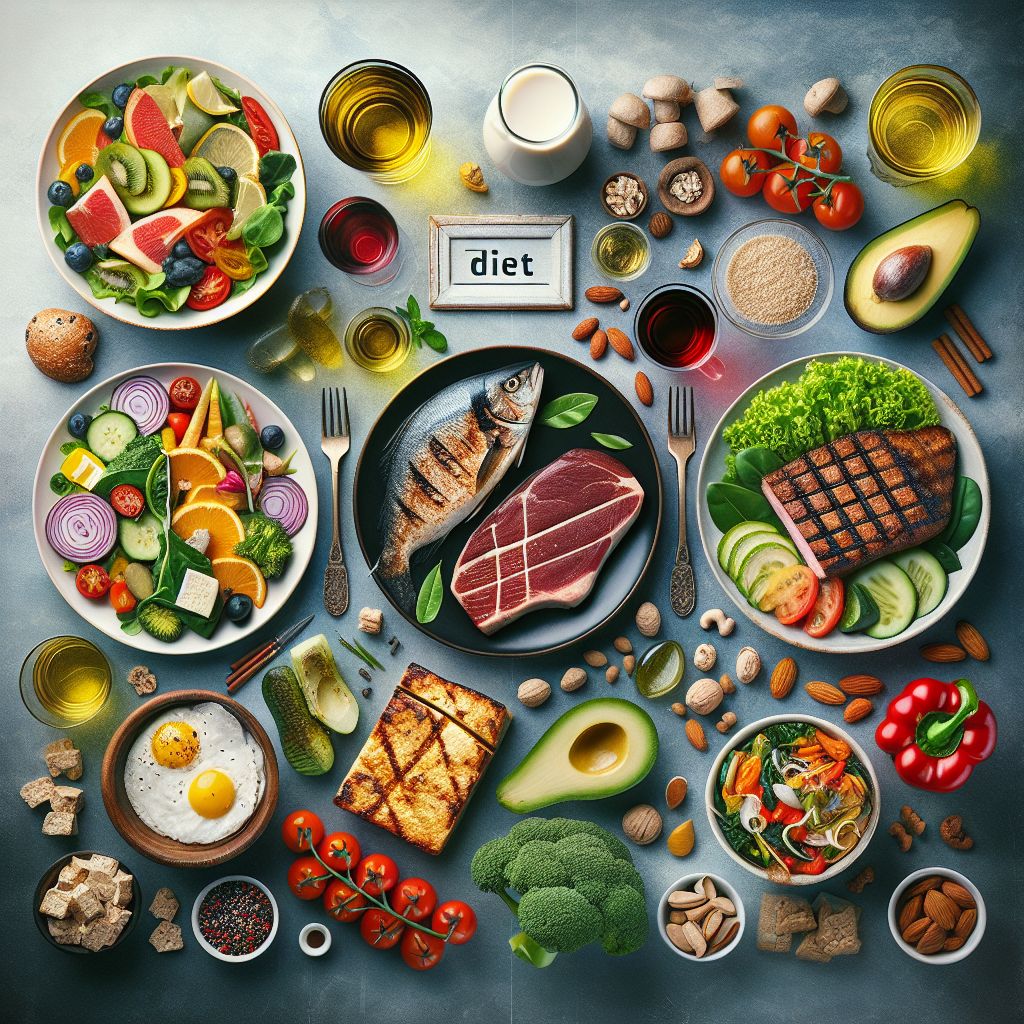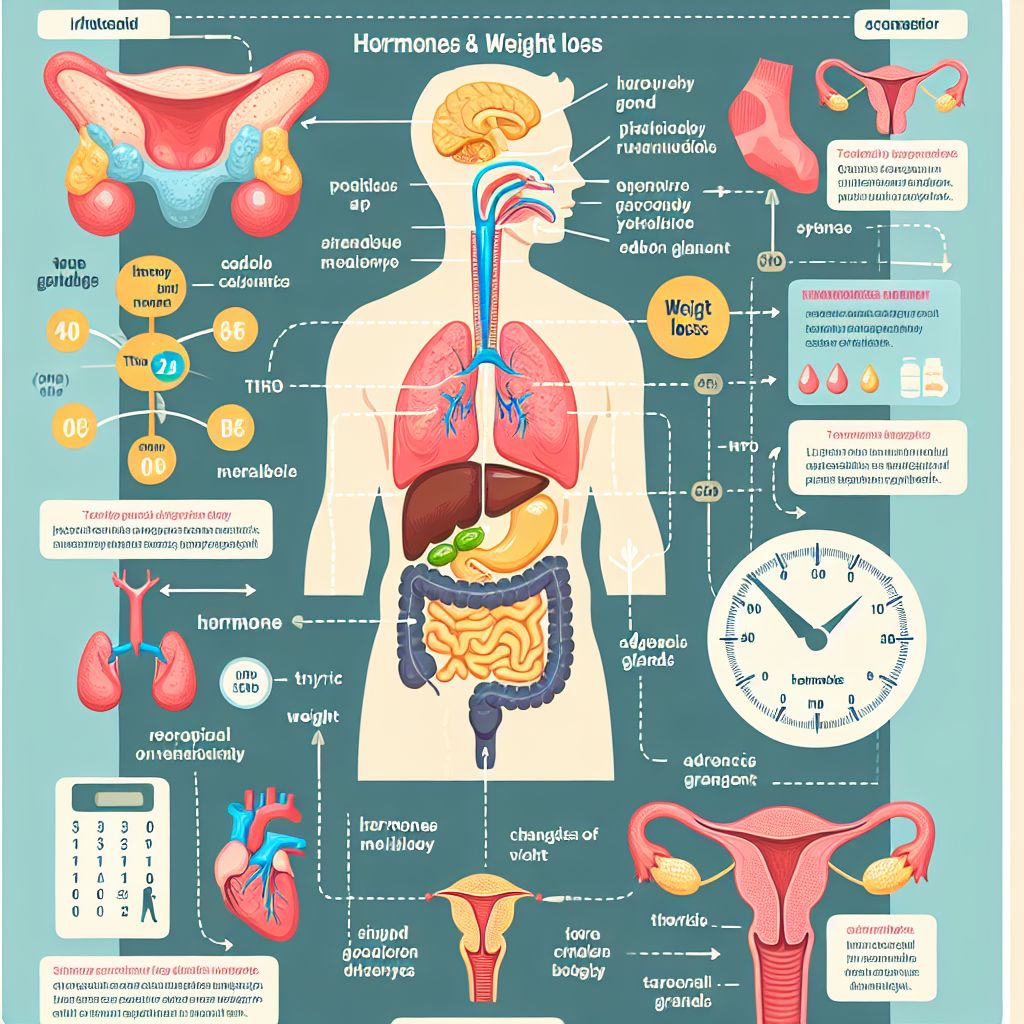
Reverse Health vs. Keto: A Comprehensive Diet Showdown
Key Takeaways
-
Reverse Health is a 12-week program designed for women’s unique physiological needs, especially during menopause.
-
The ketogenic diet is a high-fat, low-carb diet that aims to put your body in a state of ketosis for weight loss and other health benefits.
-
Hormonal changes and aging can significantly affect metabolism and weight management.
-
Understanding the benefits and challenges of each diet can guide you to a personalized and sustainable weight loss plan.
-
Real-life success stories and expert recommendations can help you decide which path to healthier living is right for you.
Decoding the Diets: Reverse Health and Keto Face-Off
When it comes to choosing a diet, the options can be overwhelming. Today, we’re looking at two popular choices: Reverse Health and the ketogenic diet. These diets are distinct in their approaches to weight loss and overall health, and they cater to different needs and lifestyles. Let’s dive in to understand what each diet entails and how they stack up against each other.
What Is Reverse Health?
Reverse Health isn’t just a diet; it’s a comprehensive 12-week weight loss program tailored for women, especially those approaching or experiencing menopause. This program addresses the unique hormonal and metabolic shifts women face during this life stage. It focuses on sustainable weight loss, improved well-being, and a community support system to help you stay on track.
What Is the Keto Diet?
The ketogenic diet is a high-fat, low-carbohydrate eating plan. It’s designed to shift your body into ketosis, a metabolic state where fat, rather than carbohydrates, is burned for energy. This diet has gained popularity for its potential to drive quick weight loss, control blood sugar levels, and even improve certain health markers.

Understanding Your Body’s Needs
How Hormones Influence Weight Loss
Most importantly, hormones play a critical role in weight management. For women, changes in estrogen and progesterone during menopause can lead to weight gain and a slower metabolism. Reverse Health takes these changes into account, aiming to balance hormones and support weight loss.
The Impact of Age and Metabolism on Dieting
As we age, our metabolism naturally slows down. This means that the same eating habits we had in our younger years may not yield the same results as we get older. Both Reverse Health and the keto diet offer solutions to this challenge, but they do so in different ways.
For instance, a woman named Sarah found that after turning 50, her usual diets stopped working. That’s when she turned to Reverse Health and noticed a change, not just in her weight, but in her energy levels and overall well-being.
Understanding your body’s specific needs is crucial in selecting the right diet for you. Factors such as age, hormone levels, and personal health goals should guide your decision-making process.
Delving into Reverse Health
Reverse Health zeroes in on the needs of women, particularly during the transitional period of menopause. It’s a holistic approach that goes beyond dieting, providing a support system and lifestyle changes that can lead to sustainable weight loss and improved health.
Core Principles of Reverse Health
The core principles of Reverse Health revolve around understanding female physiology and the impact of hormonal changes on weight. It’s about creating a supportive environment where women can learn, share experiences, and encourage each other.
-
Personalized meal plans that cater to changing hormonal needs.
-
Exercise programs that are effective and menopause-friendly.
-
Community support to keep you motivated and accountable.
These principles are designed to slow down and reverse the trajectory of weight gain that often accompanies aging, particularly around menopause.
Pros of Reverse Health for Metabolic Health
Reverse Health can lead to improved metabolic health by focusing on hormone balance and a diet that’s rich in nutrients. Women have reported benefits such as:
-
Sustainable weight management.
-
Increased energy levels and better mood.
-
Reduction in menopause-related symptoms like hot flashes and night sweats.
These benefits are particularly important as they can contribute to a higher quality of life and better health outcomes long term.
Cons and Considerations
However, no program is without its drawbacks. Some considerations when looking at Reverse Health include:
-
The need for commitment to a 12-week program.
-
Potentially adjusting to a new way of eating and living that may differ significantly from your current habits.
-
Understanding that results can vary based on individual adherence and physiological differences.
Despite these considerations, many find that the structured support and tailored approach of Reverse Health provide a solid foundation for lasting change.

“Should you follow a ketogenic diet …” from www.flickr.com and used with no modifications.
Exploring the Keto Diet
The ketogenic diet has a different approach, focusing on macronutrient balance to achieve weight loss and other health benefits. It’s become well-known for its fast results and has been embraced by many looking for a quick way to shed pounds.
Key Elements of Keto
At the heart of the keto diet are three key elements:
-
A high intake of fats, providing up to 70-80% of daily calories.
-
Moderate protein consumption to help maintain muscle mass.
-
Low carbohydrate intake to trigger ketosis, a state where the body burns fat for fuel instead of glucose.
These elements work together to change the way your body uses energy, which can lead to weight loss and other health benefits.
Benefits of a High-Fat, Low-Carb Approach
Those who advocate for the keto diet often cite several benefits:
-
Quick weight loss, as the body starts to burn fat for energy.
-
Improved blood sugar control, which can be beneficial for those with type 2 diabetes.
-
Potential improvements in cardiovascular health markers, like reduced LDL cholesterol.
Besides that, many find the keto diet to be less restrictive in terms of meal richness and satiety due to the high fat content.
Potential Challenges and Risks
Yet, the keto diet is not without its challenges:
-
Restrictive food choices can lead to nutrient deficiencies if not properly managed.
-
Some individuals may experience the “keto flu,” a collection of symptoms that can occur as the body adjusts to ketosis.
-
Long-term adherence can be difficult for some, leading to potential weight regain if the diet is not followed consistently.
Therefore, it’s important to weigh these factors when considering keto as a dietary option.
Reverse Health vs. Keto: The Showdown
Now, let’s compare these two approaches head-to-head. While both Reverse Health and the keto diet aim to assist with weight loss and health improvement, they do so through vastly different methodologies and with different target audiences in mind.
Comparing Weight Loss Results
Weight loss results can vary widely between individuals, but both diets have shown efficacy in this arena. Reverse Health focuses on gradual, sustainable weight loss over a 12-week period, while keto often results in quicker weight loss due to the drastic reduction in carb intake.
However, the key to success with either program is consistency and adherence, which can be influenced by how well the diet fits into your lifestyle and meets your personal needs.
Health Benefits Beyond the Scale
Looking beyond weight loss, both diets offer additional health benefits. Reverse Health can lead to improved hormonal balance and reduced menopause symptoms, while the keto diet has been linked to better blood sugar control and potential heart health benefits.
Long-Term Sustainability and Lifestyle Fit
When it comes to long-term sustainability, Reverse Health aims to instill lifelong healthy habits, while the keto diet requires a continuous state of ketosis to maintain its benefits, which can be challenging over the long haul. The best diet for you will depend on your ability to maintain these lifestyle changes indefinitely.

Real-Life Transformations
Real-life success stories can offer powerful testimony to the effectiveness of a diet. Let’s look at some transformations that have occurred with both Reverse Health and the ketogenic diet.
Success Stories: Reverse Health Achievements
Many women on the Reverse Health program have reported not only weight loss but also increased vitality and a decrease in menopause-related symptoms. One such story is of a woman named Linda, who, after struggling with weight gain post-menopause, found that Reverse Health helped her regain control over her body and her health.
Keto Journeys: Before and After
On the other hand, the keto diet has its own share of success stories. For example, a man named Mark saw significant weight loss within the first few months of starting keto, alongside improvements in his blood sugar levels, which allowed him to manage his type 2 diabetes more effectively.
These stories highlight the potential of both diets to transform lives, but they also underscore the importance of choosing a diet that aligns with your individual health goals and lifestyle.
Choosing Your Path: Expert Recommendations
When deciding between Reverse Health and keto, consider the following:
-
Your personal health goals and whether they align more with hormonal balance or quick weight loss.
-
How each diet fits into your lifestyle and how sustainable it is for you personally.
-
Your willingness to commit to a program or diet long-term to maintain results.
Ultimately, the best diet is the one you can stick to and that promotes your overall well-being. If you’re ready to start your journey towards better health, it’s time to Get Started with a plan that’s built for you.
Choosing between Reverse Health and the ketogenic diet is a significant decision that can impact not only your waistline but your overall health and lifestyle. Each diet has its own set of benefits and challenges, and the right choice depends on your individual needs, goals, and circumstances.
As you stand at this crossroads, consider your long-term health goals, your body’s unique needs, and your ability to maintain dietary changes over time. Remember, the most successful diet is one that becomes a sustainable part of your everyday life, bringing you not only closer to your weight goals but also improving your overall well-being.
When to Consider Reverse Health
Reverse Health is particularly tailored for women who are navigating the complexities of hormonal changes during menopause. If you’re looking for a program that understands the intricacies of your body’s needs during this time, Reverse Health could be the perfect fit. It’s also an excellent choice if you value community support and a holistic approach to weight loss that includes lifestyle and dietary changes.
When Keto Might Be Right for You
The ketogenic diet may be a good option if you’re seeking a more structured diet that emphasizes rapid weight loss and metabolic changes through ketosis. It’s suitable for those who are comfortable with a high-fat, low-carb diet and are looking to potentially improve blood sugar levels and other health markers.
Starting Your Weight Loss Journey
Embarking on a weight loss journey is a personal and sometimes challenging adventure. It’s crucial to equip yourself with the right tools, knowledge, and support to ensure success. Whether you choose Reverse Health or the ketogenic diet, remember that your journey is unique to you. Embrace the process, celebrate your victories, and always prioritize your health and happiness.
Frequently Asked Questions (FAQ)
When considering a new diet, you’re bound to have questions. Let’s address some of the most common inquiries about Reverse Health and the ketogenic diet to help you make an informed decision.
Who Should Avoid Keto?
While the ketogenic diet can offer many benefits, it’s not suitable for everyone. Individuals with certain medical conditions, such as pancreatitis, liver failure, disorders of fat metabolism, or certain mitochondrial disorders, should avoid keto. Pregnant or breastfeeding women should also steer clear of this diet. If you have type 1 diabetes or other specific health issues, consult your healthcare provider before starting keto.
Can Reverse Health Help During Menopause?
Yes, Reverse Health is specifically designed to support women during menopause. The program takes into account the hormonal fluctuations that occur during this time and offers a tailored approach to diet, exercise, and lifestyle changes that can help manage weight and reduce menopause symptoms.
Monica, a 52-year-old woman, found that after joining Reverse Health, she not only lost weight but also experienced a significant reduction in hot flashes and an increase in energy. This is just one of many success stories from women who have found relief during menopause through the Reverse Health program.
Is It Possible to Combine Aspects of Both Diets?
While Reverse Health and the ketogenic diet are distinct programs, it is possible to take elements from both to create a personalized diet plan. For example, you might adopt the ketogenic focus on low-carb, high-fat foods while incorporating the hormone-balancing strategies and community support that Reverse Health provides. Always consult with a nutritionist or healthcare provider before combining diet plans to ensure it’s safe and effective for your needs.
How Quickly Can I Expect Results with Reverse Health?
Results with Reverse Health can vary, but many women start to see changes within the first few weeks of the program. Keep in mind that this is a 12-week program designed for sustainable weight loss and lifestyle changes, so patience and consistency are key.
Do I Need to Count Calories on Keto?
While calorie counting isn’t the main focus of the ketogenic diet, being mindful of your calorie intake can be helpful, especially if you’re not seeing the weight loss results you expect. The primary goal of keto is to maintain a state of ketosis by monitoring your macronutrient ratio, but total caloric intake still matters for weight loss.

Hi, I’m David, the founder of Semaglutide Group and a passionate advocate for busy moms looking to reclaim their health and well-being. I understand the challenges that come with balancing family responsibilities while trying to maintain a healthy lifestyle. My knowledge of semaglutide has been impactful, and now I’m on a mission to share this knowledge with other moms who are eager to find a sustainable path to weight loss.
2 thoughts on “Reverse Health vs. Keto: A Comprehensive Diet Showdown”
Leave a Reply
You must be logged in to post a comment.

[…] weight can be a challenge, especially when life throws curve balls at your routine. But LeanBiome offers a helping hand during those times. It’s designed to support your body’s natural processes, so even […]
[…] forget to drink plenty of water. Hydration is crucial, especially as your body is getting used to […]